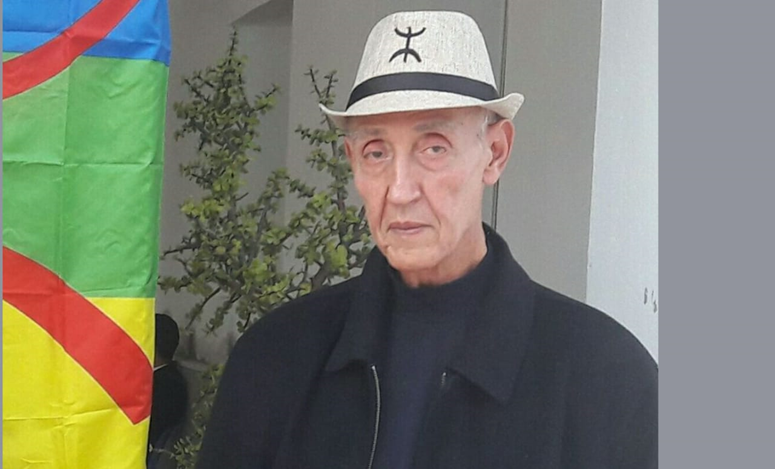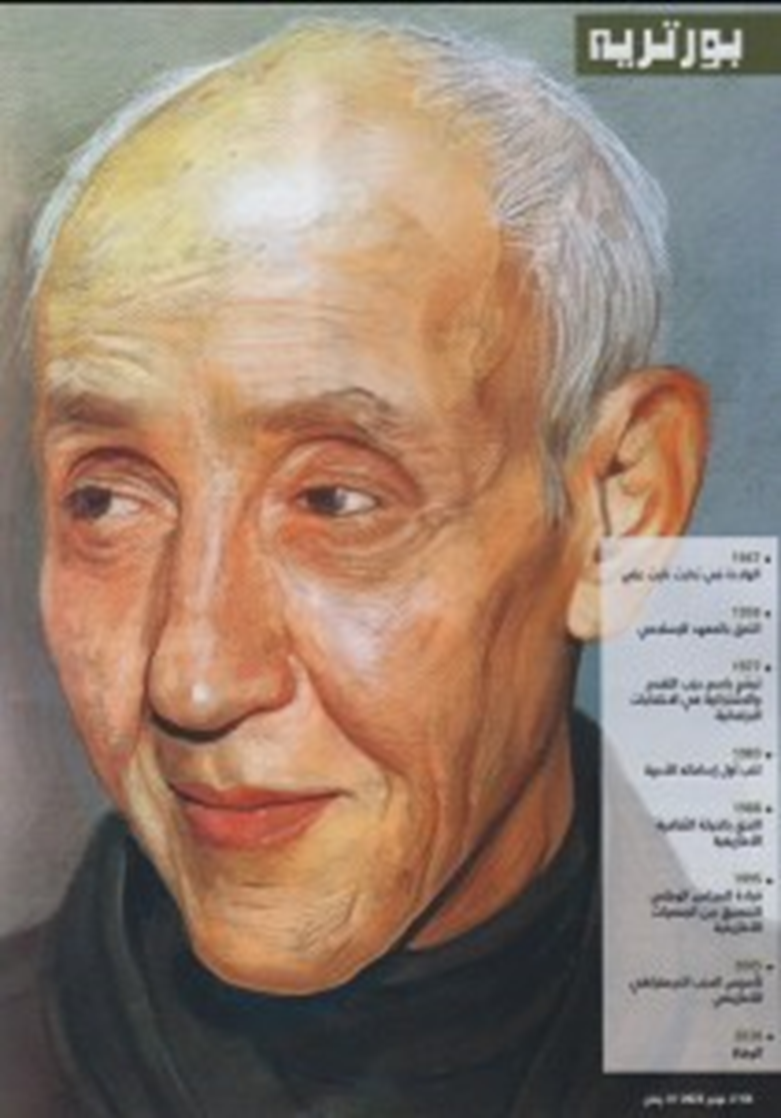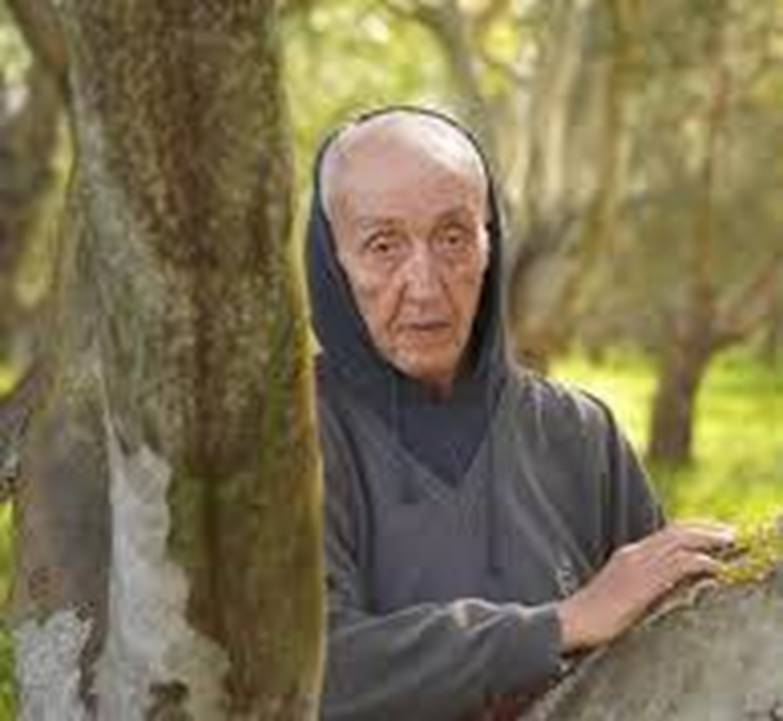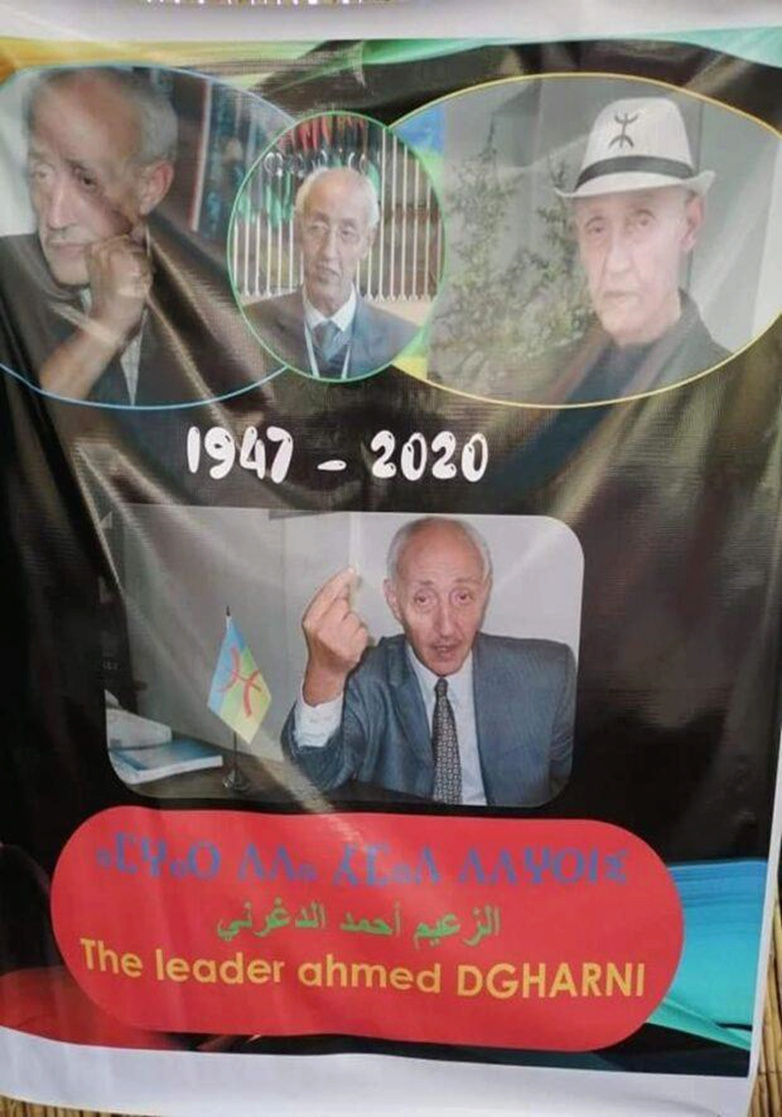Ahmed Al-Dagherni... a man who was born to be a democratic fighter

Ahmed Dagherni is one of the symbols of Amazigh work, not only in Morocco, but also in North Africa and “Diaspora”. His main advantage is that he combined theory and practice, and his rare strength is his bold stances and desperate defense of his intellectual and political propositions, as well as his ability to say the word no even if it requires making huge sacrifices in a time of yes!
Those who follow Dagherni’s path of struggle stop at a group of stations that distinguished the man’s path and contributed to the crystallization of his personality as a solid defender of the Amazigh cause in its legal, political, cultural and civilizational aspects.
Thus, we find that Dagherni was present and active in the various stages of the Amazigh issue, from the time of the associational-cultural period to the time of the jurist, then the political and partisan era. This is because his rich path is sufficient to read and document the history of the Amazigh movement in Morocco.

Siy Dagherni fought his struggles for the Amazigh issue on multiple fronts. He chaired the National Council for Coordination between Amazigh Associations in the mid-nineties of the last century, and from his position he submitted a memorandum on the subject of constitutionalizing the Amazigh language to the Royal Counselor André Azoulay on the occasion of reviewing the constitution in 1996. He was also among My website was known as the “Amazigh Manifesto” for short, and the negotiators of the Royal Palace delegation alongside Professor Mohamed Shafik and the resistance figure Abdel Hamid Al-Zamouri in the year 2000. He was also behind the project to establish a party with an Amazigh reference in the year 2005, and he resisted the decision to ban him by the Ministry of the Interior in the corridors of the courts, and then he was among A group of actors behind the initiative to establish the “Tamont Liberties” Party, which this project was not destined to materialize, In addition to his support for the struggles of the “February 20 Movement” and his demand for freedom for the detainees of the “Rif Movement,” and his defense, as an experienced lawyer, of the activists of the Amazigh movement, and other battles that he fought so steadfastly, the author of the “Amazigh Alternative” thesis.
On the other hand, Al-Dagherni, known by the nickname “Da Hammad,” struggled on the international front through his participation in the Human Rights Conference in Vienna in 1993, his contribution to the establishment of the World Amazigh Congress in 1997, and confronting the Arab nationalist movement hostile to the Amazigh issue through his fiery statements in the international media, especially the Qatari Al-Jazeera channel. As well as his meetings with well-known European, American, and Israeli international figures.
It is the path of a struggling man who devoted his life to defending the Amazigh language on multiple media, legal and political levels inside and outside Morocco. He paid a heavy price from the enemies and opponents of this issue, even though his forward-looking vision of the horizon of the Amazigh issue was generally correct. Many things have been achieved, such as the demarcation of the Amazigh language, the recognition of the Amazigh Sunnah, and reconciliation with the long history of Morocco. Because of his intellectual proposals and political positions, “Da Hammad” was accused of racism, sowing division, etc., but this only increased his strength and determination to continue on his distinguished path of struggle.

The man combined law, legal work, political struggle, ideological theorizing, and interest in literature and media.
The death of Ahmed Dagherni represented a major loss to the Amazigh cause, as the national arena has thus lost a staunch defender of cultural and linguistic rights, and a strong fighter for a democratic Morocco with multiple identity, language and culture, that accommodates everyone, and whose people enjoy freedom, dignity and coexistence.
His personality was distorted by some opponents, an image of him was promoted that did not match reality, and he was excluded from the membership of the Administrative Council of the Royal Institute of Amazigh Culture for incomprehensible considerations... After his death, His Majesty King Mohammed VI did justice to him. The condolence telegram sent by the Moroccan King to the family of Professor Ahmed Dagherni contained many strong connotations that did justice to the man from the tyranny of his opponents and gave him the position he deserved: On this sad occasion, “We express to you, and through you to all the family of the deceased, his relatives and friends, and to his large legal family, our deepest condolences and sincere feelings of sympathy, on the loss of a human rights activist, known for his professional competence and commitment to the nobility and honor of the legal profession and human rights issues.” (End of speech) royalist).

Siy Ahmed Dagherni, “Da Hammad,” or Amghar of the Amazigh cause, did not die. Rather, his ideas are still alive and strongly in the conscience of all honorable people and activists who yearn for a democratic Morocco, a Morocco of justice, dignity, and respect for human rights.
Source: websites

